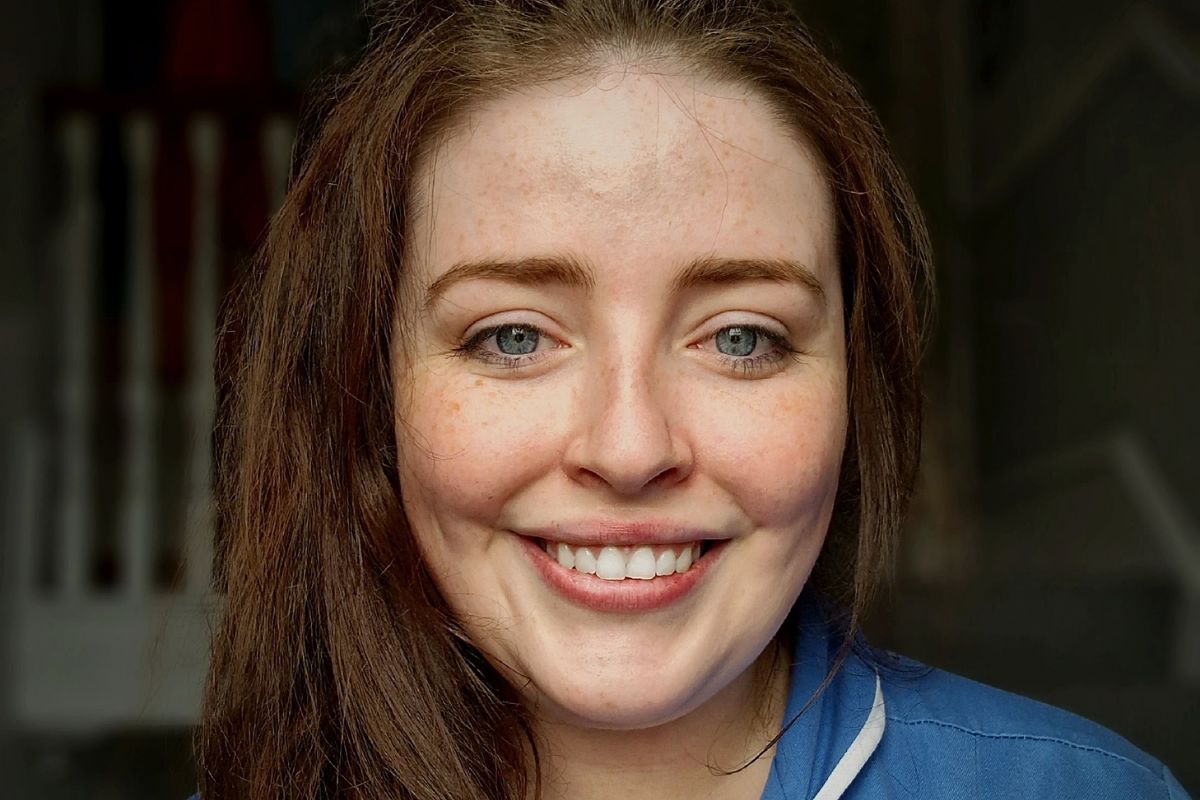Plan B Can Lead to a Successful Career

A Foundation Degree at a FE College can be an excellent alternative to going directly to university after school, according to Molly McEwan, an alumnus of Northern Regional College.
Molly, who is now a qualified paediatric nurse working in intensive care in Royal Belfast Hospital for Sick Children, did A levels in Biology, Sociology and English Literature. Originally, she had intended to go directly to university to study nursing but did not secure the necessary grades.
All was not lost though because, as Molly explained, she had a Plan B.
“I did some research before the A level results came out to investigate all the options and discovered that Northern Regional College offered a Level 5 (Foundation Degree) course in Health and Social Care accredited by Ulster University.”
She continued: “This really piqued my interest, so I investigated some more to find out what the course involved and realised that it would be an excellent way to build on my skills in preparation for progressing to university.
“It would also give me a chance to study health and social care, something I never had an opportunity to do before.”
Molly enrolled on the Foundation Degree in Health and Social Care at the College’s Newtown abbey campus in 2016. She completed the course in 2018 with a distinction. She then worked in Antrim Area Hospital ICU as a Senior Nursing Assistant and then went on to secure her place on the BSc (Hons) Professional Children’s Nursing at Queen’s University, Belfast. She then graduated with a First Class Honours degree in 2022.
An enthusiastic supporter of the Foundation Degree, Molly has been back to her alma mater to speak to Health and Social Care students about her own progression route to becoming a nurse.
“I would absolutely recommend the Foundation Degree as a great alternative, not only for someone who didn’t get the A level grades needed for university but also for those who may have got the grades but don’t feel quite ready for university or maybe still aren’t too sure what they want to study.”
Molly continued: “The Foundation degree in Health and Social Care covers a very diverse and interesting curriculum. Its content is current and it is a great preparation for university and can also help open doors for future work because of the contacts you will make during placements.
“I enjoyed the opportunity for independent learning and the chance we got to source and explore extended literature. We also were able to choose our placements where we could apply the skills and knowledge that were taught throughout the course.”
Molly added that she felt the Foundation Degree had given her a head start for when she went to Queen’s University:
“The Foundation Degree was a great preparation for doing a nursing degree at Queen’s and, because the curriculum for the first year of the degree was extremely similar to what I had already covered, I felt I excelled. I already had the building blocks in place, so this was a great boost to my confidence.”
With a growing demand for competent and patient-centred employees in the health and social care sector, the Foundation Degree in Science (FdSc) in Health and Social Care is an innovative and contemporary course designed to equip students with the knowledge, skills, experience, attitudes and values needed for employment in this sector.
“My Foundation Degree lecturers most extremely supportive and professional and all modules were taught and delivered to the highest standards.
“The lecturers have great in-depth knowledge of theory and they were able to draw on their own professional experience and practice to enhance their teaching and our learning.
“The Foundation Degree has opened so many doors for me and I still use the skills developed while I was doing my Foundation Degree at Northern Regional College every day in my own professional practice.”











Responses